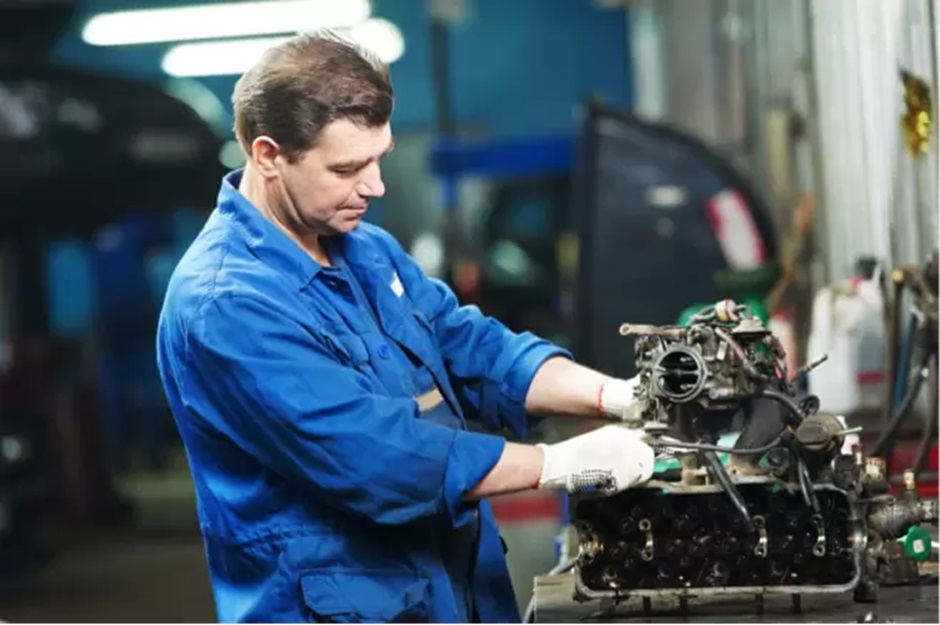Keeping Your Diesel Engine and Transmission in Top Shape: A Guide to Maintenance and Repairs

Maintaining the efficiency and reliability of a diesel engine and its transmission is crucial for ensuring the longevity and performance of your vehicle. Proper maintenance and timely repairs can prevent costly breakdowns and enhance the overall driving experience. This guide provides essential insights into diesel maintenance and auto transmission repair, offering a comprehensive approach to keeping your vehicle in optimal condition.
Diesel Maintenance
Diesel engines are renowned for their durability and power, but they also require specific maintenance practices to perform at their best. Regular diesel maintenance involves several key activities:
- Regular Oil Changes: Diesel engines operate under high pressure and temperature, which accelerates oil degradation. Frequent oil changes—typically every 3,000 to 5,000 miles—are essential to ensure that the engine remains lubricated and free from contaminants. Using high-quality diesel engine oil that meets manufacturer specifications is critical.
- Fuel System Maintenance: The fuel system of a diesel engine needs regular attention to prevent performance issues. Replacing the fuel filters according to the manufacturer’s recommendations helps ensure that contaminants do not clog the fuel injectors. Additionally, using high-quality diesel fuel and additives can prevent injector fouling and improve combustion efficiency.
- Air Filter Replacement: A clean air filter is crucial for optimal engine performance. Diesel engines rely on a steady supply of clean air to maintain combustion efficiency. Regularly inspecting and replacing the air filter, typically every 12,000 to 15,000 miles, helps prevent dirt and debris from entering the engine, which can cause damage and reduce fuel efficiency.
- Cooling System Checks: Diesel engines generate significant heat, making a well-functioning cooling system essential. Regularly check the coolant level and condition, and ensure that the radiator, thermostat, and water pump are in good working order. Flushing the cooling system and replacing the coolant as per the manufacturer’s schedule helps prevent overheating and engine damage.
- Belt and Hose Inspections: Belts and hoses play a vital role in the operation of diesel engines. Inspecting these components for wear and tear and replacing them as needed helps prevent unexpected breakdowns. Pay particular attention to the serpentine belt, which drives multiple engine components, and the hoses connected to the cooling and fuel systems.
Auto Transmission Repair
The transmission is a complex component that plays a critical role in the performance of a vehicle. Proper auto transmission repair and maintenance are essential to ensure smooth shifting and reliable operation.
- Transmission Fluid Changes: Just like engine oil, transmission fluid deteriorates over time and can affect transmission performance. Regularly changing the transmission fluid—typically every 30,000 to 60,000 miles—helps maintain the proper hydraulic pressure and lubrication needed for smooth shifting. Ensure that the fluid used meets the specifications outlined in the vehicle’s owner’s manual.
- Filter Replacement: Transmission filters trap debris and contaminants that could otherwise damage the transmission. Replacing the transmission filter at regular intervals, as recommended by the manufacturer, helps ensure that the transmission operates smoothly and extends its lifespan.
- Check for Leaks: Transmission fluid leaks can lead to low fluid levels and potential transmission damage. Regularly inspect the transmission for signs of leaks, such as puddles of fluid under the vehicle or a burnt smell. Addressing leaks promptly helps prevent damage and costly repairs.
- Transmission Diagnostics: Modern vehicles are equipped with sophisticated transmission control systems. If you notice shifting issues, slipping, or unusual noises, it is crucial to have the transmission diagnosed by a professional. Early detection of problems can prevent more extensive damage and costly repairs.
- Clutch Maintenance: For manual transmissions, the clutch plays a significant role in shifting gears. Regularly inspecting the clutch for signs of wear, such as difficulty in shifting or a slipping clutch, is essential. Timely repairs or replacements of the clutch can prevent more severe transmission issues.
- Professional Inspections: Regular professional inspections by a qualified technician are crucial for maintaining the health of both the diesel engine and transmission. A thorough inspection can identify potential issues early and ensure that both components are functioning optimally.
Conclusion
Keeping your diesel engine and transmission in top shape requires a proactive approach to maintenance and repair. Regular diesel maintenance, including oil changes, fuel system upkeep, and cooling system checks, is essential for engine longevity. Equally important is timely auto transmission repair, which involves fluid changes, filter replacements, and addressing any signs of leaks or performance issues. By adhering to these practices and seeking professional assistance when needed, you can ensure the reliable performance and extended lifespan of your vehicle.
